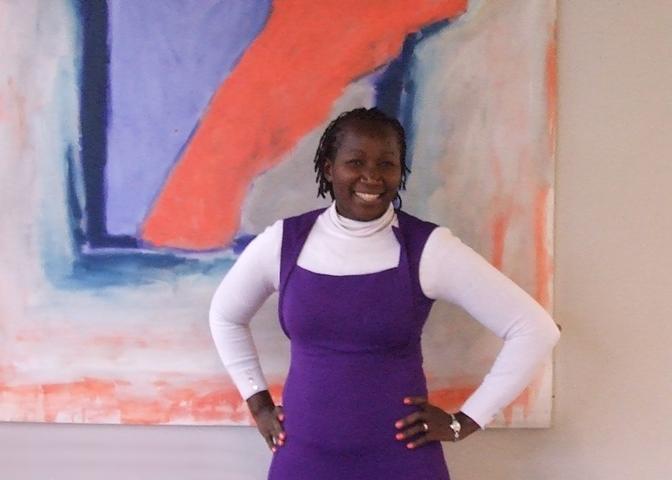Beatrice Mateyo Mkanda
(Malawi)
MA in Women, Gender and Society, University College Dublin
In 2011, Beatrice applied for an Irish Aid Fellowship whilst working with the Justice and Peace programme of one of Irish Aid's partner NGOs in Malawi. She was successful in being awarded a scholarship to study for a Masters degree at University College Dublin for the academic year 2012-13.

Things will be different in my work role when I go back. I will be applying fresh knowledge and insights into the work that I’m doing. The research I’ll be doing as part of my Masters will also have a direct input to the programmes I’ll be spearheading when I get back, so it’s going to be a whole different ball game.
At the time of gaining an Irish Aid fellowship I was working for the Episcopal Conference of Malawi, specifically within their Justice and Peace programmes. My role as a Gender Programmes Co-ordinator was to support gender mainstreaming, through activities such as needs assessments and research so, that it formed part of all the programmes we were implementing across the board - whether on food security, advocacy or health.
The MA in Women, Gender and Society at UCD is very relevant to the work as I was doing. I was feeling there was a need to update my knowledge and gain new insights and skills to better develop the programmes. As well as benefitting from the course in those terms, I feel I will be better able to network when I get back home and also share the knowledge with my colleagues.
One of the very useful modules has been on Masculinities and Equality because one of the projects I was working on back home was looking at masculinities and the prevalent culture and linking them to the spread of HIV/AIDS. I have gained a lot of insights on how masculinities are constructed within the community, how that links into the general behaviour of men and the ways we can get into a discussion with men about how their behaviour puts them and their partners at risk of contracting the virus.
Interacting with the Irish community has taught me that we are different in some aspects but also the same in many aspects. I’ve learnt that gender-based violence is a cross-cutting issue across all cultures, but also that there are differences between the countries in what is defined as gender-based violence, including some things that would be considered a normal occurrence of the day in my country.
Things will be different in my work role when I go back. I will be applying fresh knowledge and insights into the work that I’m doing. The research I’ll be doing as part of my Masters will also have a direct input to the programmes I’ll be spearheading when I get back, so it’s going to be a whole different ball game.
Looking to the future of Malawi, I hope to see more women benefitting from education. To have women in higher positions or leadership roles we need them to access education at all levels. It helps that our president is passionate about the issues of women.
At a personal level, I hope to apply the knowledge I’ve gained and build further experience and ultimately progress to PhD level at a later stage. I hope I can manage it with other responsibilities I have going on in my life but that’s the aspiration I have.
Update from Beatrice - August 2015
I have now moved on to a new role as a Social and Gender Assessment Officer with Millenium Challenge Account Malawi. In this post I provide support to the Social and Gender Assessment Director in promoting gender equality and social inclusion in all projects of the compact as planned in the Social and Gender Integration Plan.
The course has given me a deeper understanding of gender inequality as well as the capacity to be able to develop programs and strategies to address this at policy as well as community level. I have been able to contribute to capacity development through the orientation of other staff members to gender and gender equality concepts.
Thesis Information: Beatrice Mateyo Mkanda (2013) Finding Ways of Saying NO! Investigating Social Processes, Gender Relations and Power in Malawian Marriages, Lambert Academic Publishing